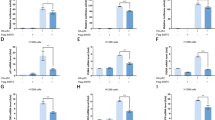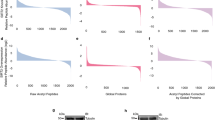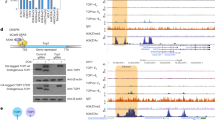Abstract
Human SIRT1 controls various physiological responses including cell fate, stress, and aging, through deacetylation of its specific substrate protein. In processing DNA damage signaling, SIRT1 attenuates a cellular apoptotic response by deacetylation of p53 tumor suppressor. The present study shows that, upon exposure to radiation, SIRT1 could enhance DNA repair capacity and deacetylation of repair protein Ku70. Ectopically over-expressed SIRT1 resulted in the increase of repair of DNA strand breakages produced by radiation. On the other hand, repression of endogenous SIRT1 expression by SIRT1 siRNA led to the decrease of this repair activity, indicating that SIRT1 can regulate DNA repair capacity of cells with DNA strand breaks. In addition, we found that SIRT1 physically complexed with repair protein Ku70, leading to subsequent deacetylation. The dominant-negative SIRT1, a catalytically inactive form, did not induce deacetylation of Ku70 protein as well as increase of DNA repair capacity. These observations suggest that SIRT1 modulates DNA repair activity, which could be regulated by the acetylation status of repair protein Ku70 following DNA damage.
Similar content being viewed by others
Article PDF
Author information
Authors and Affiliations
Rights and permissions
This is an Open Access article distributed under the terms of the Creative Commons Attribution Non-Commercial License (http://creativecommons.org/licenses/by-nc/3.0/) which permits unrestricted non-commercial use, distribution, and reproduction in any medium, provided the original work is properly cited.
About this article
Cite this article
Jeong, J., Juhn, K., Lee, H. et al. SIRT1 promotes DNA repair activity and deacetylation of Ku70. Exp Mol Med 39, 8–13 (2007). https://doi.org/10.1038/emm.2007.2
Published:
Issue date:
DOI: https://doi.org/10.1038/emm.2007.2
Keywords
This article is cited by
-
Oncogenic KRAS mutation confers chemoresistance by upregulating SIRT1 in non-small cell lung cancer
Experimental & Molecular Medicine (2023)
-
Role of mitochondria in nuclear DNA damage response
Genome Instability & Disease (2022)
-
HMGB1 signaling phosphorylates Ku70 and impairs DNA damage repair in Alzheimer’s disease pathology
Communications Biology (2021)
-
Sirt1 deficiency upregulates glutathione metabolism to prevent hepatocellular carcinoma initiation in mice
Oncogene (2021)
-
Regulation of Rothmund–Thomson syndrome protein RecQL4 functions in DNA replication by SIRT1-mediated deacetylation
Genome Instability & Disease (2021)



